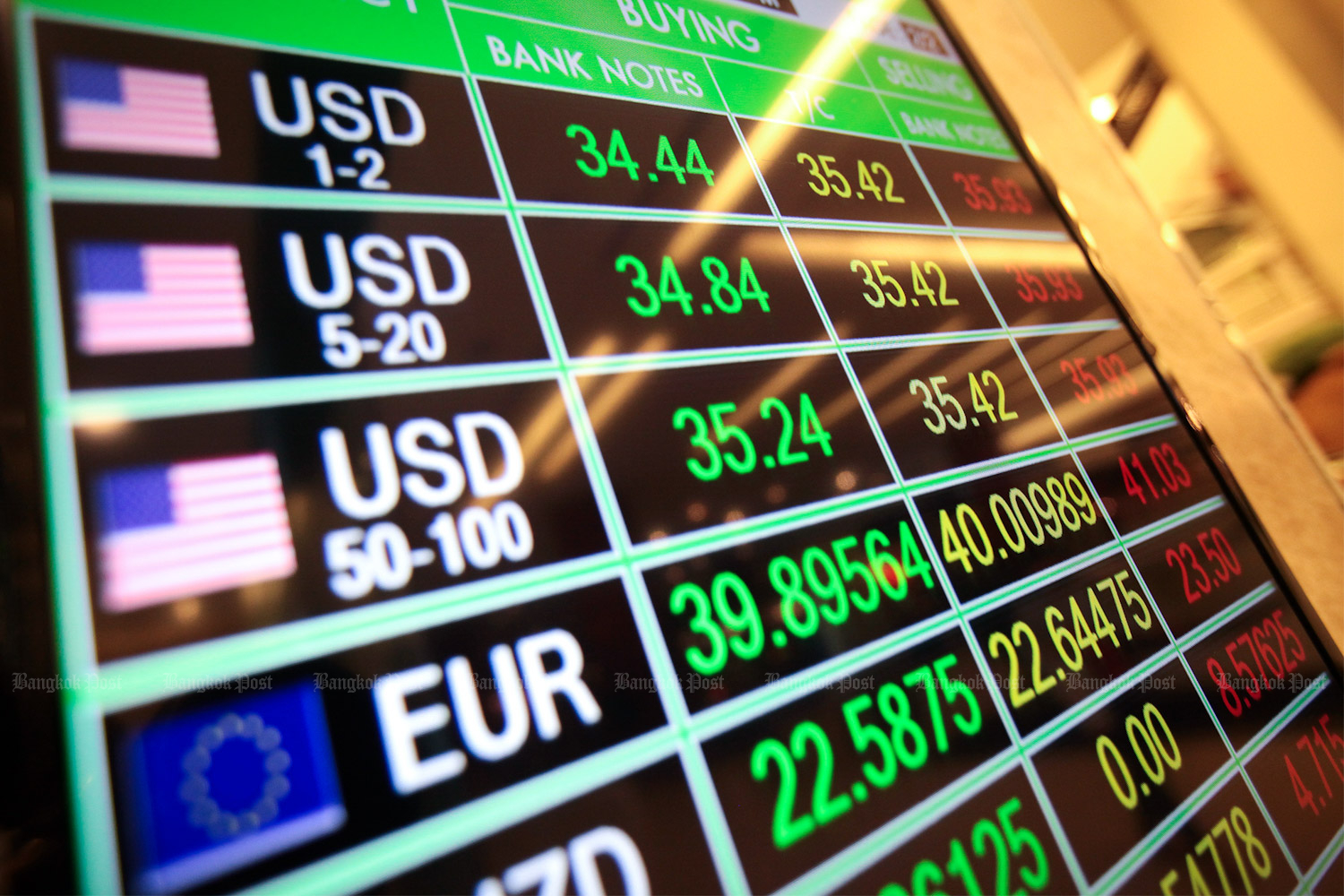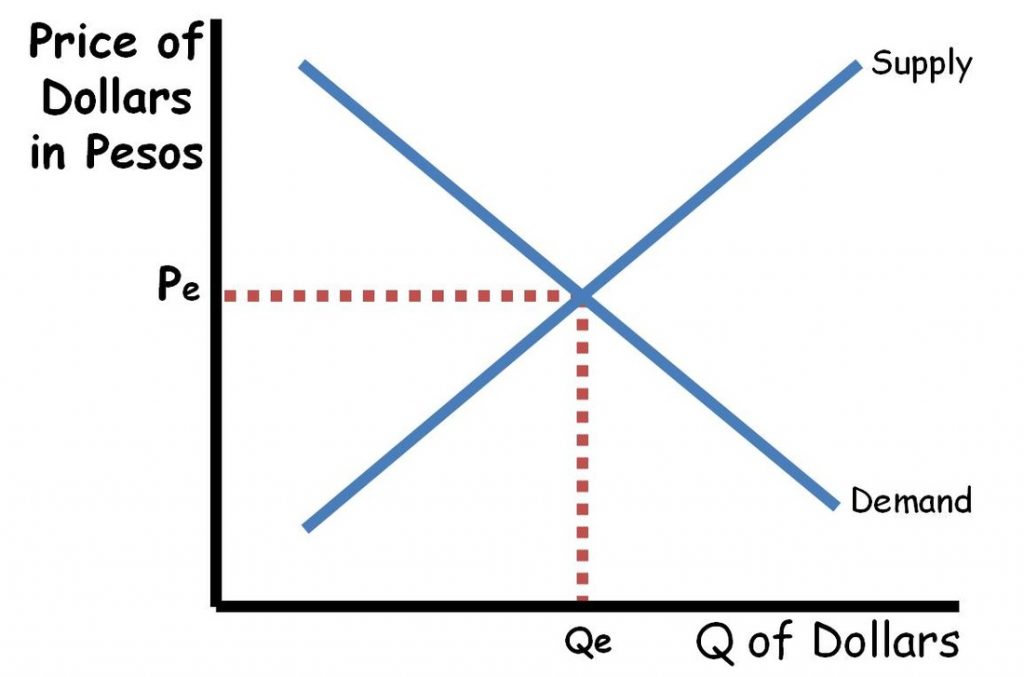What are foreign exchange market used for - What are foreign exchange markets used for? They play a crucial role in facilitating international trade, enabling individuals to make personal transactions, and managing currency risk. Dive into this comprehensive guide to unravel the intricacies of the foreign exchange market.
Businesses leverage the foreign exchange market to settle international transactions, import goods, and expand their global reach. Individuals utilize it for personal expenses, such as travel, education, and investments abroad. Moreover, the foreign exchange market serves as a risk management tool, allowing entities to mitigate currency fluctuations and protect their financial positions.
Foreign Exchange Market Overview
:max_bytes(150000):strip_icc()/foreign-exchange-markets.asp-final-16abed069d5e4ba0924142476dec4211.png)
The foreign exchange market (Forex, FX, or currency market) is a global, decentralized marketplace where currencies are traded. It is the largest financial market in the world, with a daily trading volume of over $5 trillion.
The purpose of the foreign exchange market is to facilitate the exchange of currencies for international trade and investment. It allows businesses, individuals, and governments to buy, sell, and exchange currencies at prevailing market rates.
Participants in the Foreign Exchange Market
The participants in the foreign exchange market include:
- Banks: Commercial banks and investment banks facilitate foreign exchange transactions for their clients.
- Currency brokers: These firms specialize in matching buyers and sellers of currencies.
- Corporations: Multinational companies need to exchange currencies for international trade and investment.
- Institutional investors: Hedge funds, pension funds, and other institutional investors trade currencies for investment purposes.
- Individual traders: Retail traders participate in the foreign exchange market through online trading platforms.
Types of Foreign Exchange Transactions
The different types of foreign exchange transactions include:
- Spot transactions: These transactions involve the immediate exchange of currencies at the current market rate.
- Forward transactions: These transactions involve the exchange of currencies at a specified future date and rate.
- Swap transactions: These transactions involve the simultaneous buying and selling of currencies, often with different maturities.
- Options transactions: These transactions give the buyer the right, but not the obligation, to buy or sell a currency at a specified price on a specified date.
Uses of the Foreign Exchange Market
The foreign exchange market serves as a global marketplace where currencies are traded, enabling a wide range of transactions and risk management activities. Businesses and individuals alike utilize the foreign exchange market for various purposes, including facilitating international trade, managing currency risk, and conducting personal transactions.
Businesses and International Trade
Businesses operating internationally rely heavily on the foreign exchange market to facilitate cross-border transactions. When a company imports goods or services from another country, it needs to convert its domestic currency into the currency of the exporting country. Similarly, when a company exports goods or services, it receives payment in a foreign currency and needs to convert it back into its domestic currency.
The foreign exchange market provides businesses with the necessary liquidity and infrastructure to execute these currency conversions efficiently. By participating in the foreign exchange market, businesses can obtain the foreign currency they need at competitive exchange rates, ensuring smooth and timely settlement of international payments.
Find out further about the benefits of meaning for foreign exchange market that can provide significant benefits.
Individuals and Personal Transactions
Individuals also utilize the foreign exchange market for personal transactions, such as travel, education, and investments. When traveling abroad, individuals need to exchange their domestic currency into the currency of the destination country. Similarly, when making international payments for education or investments, individuals need to convert their currency into the currency of the recipient country.
The foreign exchange market offers individuals access to a wide range of currency exchange services, including online platforms, banks, and currency exchange bureaus. These services allow individuals to convert currencies at competitive rates and with convenient access, facilitating their personal transactions.
Examine how meaning of foreign exchange market pdf can boost performance in your area.
Managing Currency Risk
Businesses and individuals engaged in international activities face currency risk, which arises from fluctuations in exchange rates. Currency risk can impact the profitability of international trade, as well as the value of investments and personal assets denominated in foreign currencies.
The foreign exchange market provides a platform for businesses and individuals to manage currency risk through hedging strategies. Hedging involves using financial instruments, such as forward contracts or options, to lock in an exchange rate for future transactions. By hedging, businesses and individuals can mitigate the impact of exchange rate fluctuations on their financial performance and personal wealth.
Benefits of Using the Foreign Exchange Market: What Are Foreign Exchange Market Used For

The foreign exchange market offers numerous advantages to both businesses and individuals. These benefits include:
Cost Savings
The foreign exchange market allows businesses and individuals to exchange currencies at competitive rates, potentially saving money on international transactions. For example, a business importing goods from another country can use the foreign exchange market to convert its domestic currency into the foreign currency needed to pay for the goods at a favorable rate, saving on transaction costs.
Increased Efficiency
The foreign exchange market provides a centralized platform for currency exchange, making it efficient for businesses and individuals to conduct international transactions. The availability of real-time currency rates and the ability to execute trades quickly and easily streamline the process of exchanging currencies, reducing delays and increasing efficiency.
Risk Management
The foreign exchange market enables businesses and individuals to manage currency risk, which is the potential loss or gain resulting from fluctuations in exchange rates. By using hedging strategies, such as forward contracts or currency options, businesses and individuals can mitigate the impact of adverse exchange rate movements on their international operations or investments.
When investigating detailed guidance, check out foreign exchange market determinants now.
Potential Risks, What are foreign exchange market used for
While the foreign exchange market offers significant benefits, it is important to be aware of the potential risks involved. These risks include:
- Exchange rate fluctuations: Currency exchange rates are constantly fluctuating, which can lead to losses if the exchange rate moves in an unfavorable direction.
- Transaction costs: While the foreign exchange market offers competitive rates, there may be additional transaction costs associated with currency exchange, such as brokerage fees or spreads.
- Counterparty risk: When conducting foreign exchange transactions, there is a risk that the counterparty may default on its obligations, leading to financial losses.
Factors Influencing Foreign Exchange Rates
 Foreign exchange rates are determined by a complex interplay of economic and political factors. Understanding these factors is crucial for businesses, investors, and individuals involved in international trade and finance.
Foreign exchange rates are determined by a complex interplay of economic and political factors. Understanding these factors is crucial for businesses, investors, and individuals involved in international trade and finance. Economic Factors
* Interest Rates: Higher interest rates in a country attract foreign investment, increasing demand for its currency and strengthening its value. * Inflation: High inflation erodes the purchasing power of a currency, reducing its value in the foreign exchange market. * Economic Growth: Strong economic growth indicates a healthy economy, boosting demand for its currency. * Trade Balance: A country with a positive trade balance (exports exceed imports) experiences increased demand for its currency, while a negative trade balance weakens its currency. * Government Debt: High government debt can lead to concerns about the country's financial stability, weakening its currency.Political Factors
* Political Stability: Political instability, such as wars or civil unrest, can erode investor confidence and weaken a currency. * Government Policies: Government policies, such as fiscal and monetary policies, can significantly impact foreign exchange rates. * Central Bank Intervention: Central banks can intervene in the foreign exchange market to stabilize exchange rates or achieve specific economic objectives.Supply and Demand
The basic principles of supply and demand also influence foreign exchange rates. * Demand: When demand for a currency increases (e.g., due to increased investment or trade), its value appreciates. * Supply: When the supply of a currency increases (e.g., due to increased exports or central bank intervention), its value depreciates.Examples of Events Causing Fluctuations
* Interest Rate Hikes: The US Federal Reserve's interest rate hikes in 2022 strengthened the US dollar against other currencies. * Political Crisis: The political crisis in Ukraine in 2022 led to a sharp decline in the value of the Russian ruble. * Trade Wars: Trade disputes between the US and China in recent years have caused fluctuations in the value of both the US dollar and the Chinese yuan.Foreign Exchange Market Regulations
The foreign exchange market is subject to a regulatory framework to ensure its stability and integrity. Central banks play a significant role in managing foreign exchange rates through monetary policy tools, such as setting interest rates and intervening in the market to stabilize currency values. They also monitor foreign exchange transactions to prevent illegal activities like money laundering. Various types of foreign exchange controls exist, such as:- Capital controls: Restrict the flow of capital across borders to maintain currency stability.
- Exchange controls: Limit the exchange of one currency for another, often used to prevent capital flight.
- Reserve requirements: Mandate banks to hold a certain amount of foreign exchange reserves to support their liabilities.
Future Trends in the Foreign Exchange Market
The foreign exchange market is constantly evolving, and several emerging trends are expected to shape its future. These trends include the increasing use of technology, the growing importance of emerging markets, and the increasing demand for transparency and regulation.
One of the most significant trends in the foreign exchange market is the increasing use of technology. This is due in part to the rise of electronic trading platforms, which have made it easier and cheaper for traders to access the market. As a result, the foreign exchange market is becoming more accessible to a wider range of participants, including retail investors and small businesses.
Impact of Technology
The use of technology is also having a major impact on the way that foreign exchange is traded. In the past, most foreign exchange trading was conducted over the phone or through brokers. However, electronic trading platforms have now become the dominant method of trading, and this trend is expected to continue in the future.
The use of technology is also leading to the development of new foreign exchange products and services. For example, some companies are now offering foreign exchange contracts that are based on cryptocurrencies. These products are still in their early stages of development, but they could have a major impact on the foreign exchange market in the future.
Forecast
The foreign exchange market is expected to continue to grow in the future. This growth will be driven by the increasing use of technology, the growing importance of emerging markets, and the increasing demand for transparency and regulation. As the market continues to grow, it is likely to become even more competitive, and traders will need to adapt to the changing landscape.
Final Review
In conclusion, the foreign exchange market is an indispensable component of the global financial system, facilitating international trade, personal transactions, and risk management. Understanding its functions and intricacies empowers businesses and individuals to navigate the complexities of currency exchange and optimize their financial outcomes.
